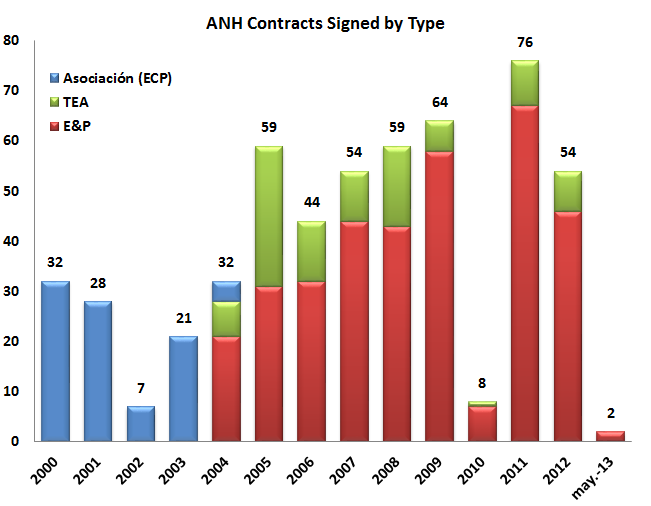
The Ministry of Mines and Energy (MinMinas) has presented its formula to lower fuel costs at the pump and also believes that the modernization of national refineries could also contribute to a lower price in the midterm.
The municipality of Monterrey has presented a socialization of the Odisea 3D seismic exploration project and its environmental impact to the municipal council so that council members can issue a statement regarding the project and possible bring it to a public referendum.

The National Hydrocarbons Agency (ANH) has set its sights on the 2014 Round to award new E&P contracts as a potential boost to investment in the hydrocarbons sector.

In December the Tauramena municipality will hold a public referendum to approve or reject nearby oil production in certain, named villages and now in Aguazul municipal leaders are looking to do the same and get the public to vote on Ecopetrol’s (NYSE:EC) Odisea 3D seismic exploration program.
A local activist and former politician has insisted authorities apply measures to limit tanker-truckers on main highways in Villavicencio Meta, demonstrating the context and need for more agreements on roads between the industry, local authorities and the community in general, like the one signed last week in Casanare.
The president of the Colombian Oil Engineers Association (ACIPET) says that an April decree to offer more flexibility for foreigners to work in Colombia has diminished the opportunities for national engineers in the oil industry.
After a setback invalidating the original candidate, the National Hydrocarbons Agency (ANH) has a new president, taping Javier Betancourt Valle for his experience in international contract matters and role in the Colombia Round 2012.
The government is presenting a new formula to calculate fuel prices and the Ministry of Mines and Energy says it has a plan that will not sacrifice income for Ecopetrol (NYSE:EC).
Ecopetrol (NYSE:EC) highlighted the results of the recent bilateral negotiation, part of the government’s effort to redefine the commercial structure of natural gas in Colombia and lower prices for the final consumer.
Two months after taking the role of the Minister of Environment and Sustainable Energy (MinAmbiente), a national paper publishes a report saying the new minister Luz Helena Sarmiento has largely remained silent since her start, a source of worry for the energy and mining industry.